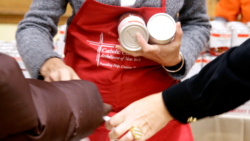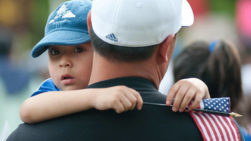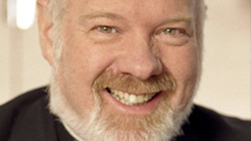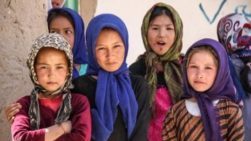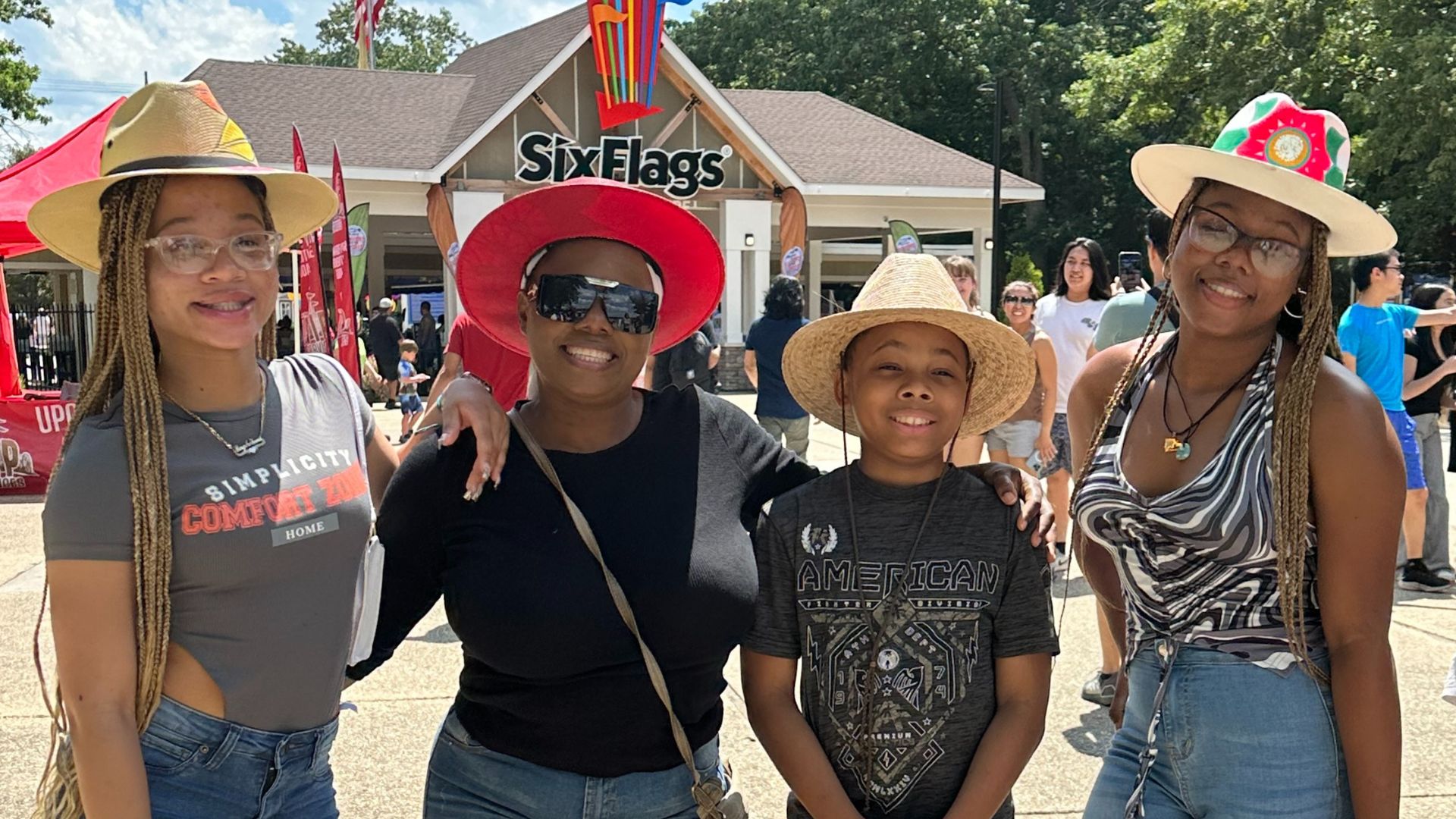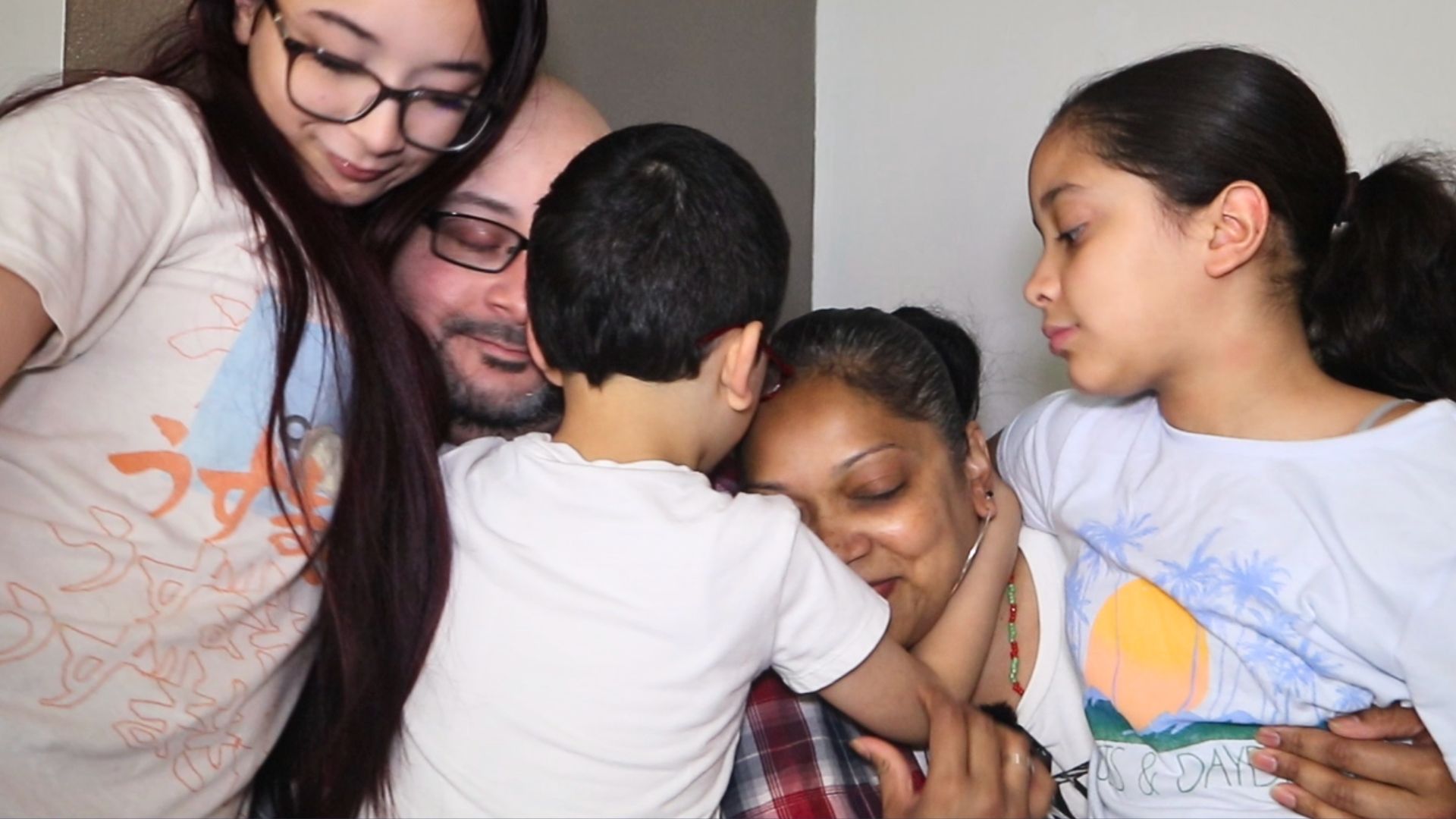Volunteers who work with Catholic Charities of the Archdiocese of New York Immigration & Refugees office provide an invaluable service to those seeking a new life in the United States. During this Volunteer Appreciation Week, we recognize three in particular for combining expertise with compassionate concern for newcomers:
Deborah Green
They seemingly appear as dry, legal statements but there’s a human story behind all the documents Deborah Green translates.
Deborah, a volunteer with Catholic Charities of the Archdiocese of New York’s Immigration & Refugees office, works with the program for unaccompanied minors who come to the U.S. without adult guardianship. Her job is intense and technical: translating into English birth certificates and affidavits, from Spanish for those from Central America and Venezuela, from French for Haitians and Africans, as the unaccompanied minors prepare for court hearings.
“I feel very committed to this,” the retiree, who lives in Queens, says about her volunteer service. The documents often tell the stories of young people forced to flee their homelands as gangs seek out boys for coerced membership and threaten girls with sexual exploitation and rape.
“You can’t just say no. The gangs intimidate young people and their families,” she says, noting the stories that are contained in the documents she translates for many of the immigrants from El Salvador, Honduras and Guatemala.
The documents Deborah works with, often stark in their details, are part of the process to appeal to U.S. immigration courts to allow unaccompanied minors legal status.
“To get asylum you have to show that you have a credible fear,” says Deborah. Often the clients whose stories are reflected in the documents, some of whom came to the U.S. when they were as young as 12, are forced to relive traumas they experienced in their homelands, including the murders of relatives. Hearing schedules are notoriously backed up for years, so that often a minor has aged into young adulthood before a case is heard.
She has never met the young people she helps. Yet Deborah takes satisfaction knowing that what she does is invaluable to their chances of gaining asylum.
Deborah’s volunteer work draws from her experience. A college graduate who majored in French and minored in Spanish, she worked for a bank with interests in Latin America. She also worked for an international human rights organization. Her interest in migration issues caused her to spend a week with a Maryknoll-sponsored study group on the Texas-Mexico border, where she saw for herself conditions in Juarez and El Paso.
“It was inspiring to see what the Church is doing to receive refugees,” she said, noting the extensive shelters on both sides of the border.
The volunteer translation work comes in waves: sometimes intense, as court dates loom, and sometimes slowed down, as the potential asylees wait for their hearings.
In retirement, she says, “I was looking for something meaningful to do. I felt it was a good use of my skills.” As a volunteer who translates documents, she knows that the more work she provides there are more cases offering hope for young, vulnerable migrants.
“My only complaint is that I wish I had more work to do,” she says.
George Tarr
He knows what it’s like to be a refugee.
As a boy, George Tarr lived with his family in a camp for the displaced in Liberia, as the country was wracked by political violence that claimed his own father and grandfather. He came to the U.S. at the age of seven, and, now, at age 31, has spent much of his career helping other refugees.
So it is perfectly natural that George would spend 10 months as a volunteer for Catholic Charities Community Services, giving back to other refugees much like his family was helped decades before.
His volunteer work included taking refugees to appointments at social service agencies and doctors, taking five hours a day, sometimes as often as five days a week. Through it all, he could see his own story in those in a new generation of refugees he assisted.
“When I was 20 years old I would come here a lot,” he said about the offices of Catholic Charities’ Immigration & Refugees Services in lower Manhattan. It was a place, he said, “to get an education on life here in America.” The office provides regular education on the mundane – how to open a checking account – to the more challenging, such as learning English or finding a job.
Refugees are legally defined in different terms than other immigrants. They have an official claim to legal status recognized in U.S. and international law, which makes provisions for those fleeing oppressive political situations. Catholic Charities works to acclimate them to life in the U.S.
He knows what it’s like to gain the experience needed to land a job. George has worked for small non-profits, and for six years was a delegate from New York to the national Refugee Congress, an organization that advocates for refugees.
George’s work as a volunteer assisted him in getting a paid position three months ago at Catholic Charities as a job developer. He now assists a caseload of refugees trying to land jobs in New York. The group he is now helping come from disparate countries, such as Russia, Ukraine, and Gambia.
“Most of the refugees who come here are starting from scratch. Some were doctors and lawyers. Now they have to start over,” he said. George helped one man, a dentist in his former country, whose credentials are not recognized in the U.S., to find work as a software developer. Much of his time is spent at job fairs and online, scouring possible employment opportunities for refugees. He also informally counsels refugees to recognize what opportunities are available, sometimes dealing with their frustration of not being able to transfer professional credentials from their home countries.
George’s own time as a volunteer familiarized him with the computer systems and other procedures used by Catholic Charities. “It helped,” George said. “It was easy to get adjusted when I became fulltime staff.”
Roseann Sorensen
For Catholic Charities’ volunteer English teacher Roseann Sorensen, classes on grammar and conversation sometimes take place at the offices of Immigration & Refugees Services in a lower Manhattan office building. But the work of cultural immersion, learning the colloquial banter of New York and building community, can just as well occur at the Metropolitan Museum of Art, the Brooklyn Botanical Gardens, or the annual inflating of the cartoon character balloons for the Thanksgiving Day Parade.
The field trips “create an opportunity to have a conversation” around the annual creation of Charlie Brown or Spiderman each Thanksgiving or around the beauty experienced in the botanical garden or an art museum. Classes are comprised of people from all over the world, refugees and immigrants from China, Russia, Ukraine, Korea, Japan and Mexico, and what they have in common is their developing English usage.
The trips, and the classes, Roseann has led since 2014, nine years that she says have flown by. The students are highly motivated.
“I enjoy interacting with them. They are dedicated to learning their English skills,” she says. “I have learned from them as much as I have taught them.”
The students teach Roseann about where they came from, and where they want to go. Her goal is to instill confidence, as many are reluctant to speak and to begin the halting process of learning a new language and need to overcome the embarrassment of being a fledgling speaker. The field trips help encourage a less-pressurized atmosphere. The students share, in English, what life was like for them in their former countries as well as their hopes and dreams in New York.
Since the pandemic, much of Roseann’s work has been done through Zoom classes. Once a begrudging accommodation to a crisis, the Zoom classes have proven advantageous. They have created space for students, who come from all over the metropolitan area, to participate in English classes without undergoing a long commute after a full day of work.
Roseann came to the volunteer teaching with impeccable credentials. She is retired from her work in academia assisting international students, a career that prepared for her current multicultural teaching. Her parents were Italian immigrants who, like her students, struggled with the language and a new culture. “I can appreciate that experience,” she says.
She’s found her retirement volunteer gig to be a valuable use of her time.
“It is a rewarding experience. It is a delightful group of people,” she says about her students.


